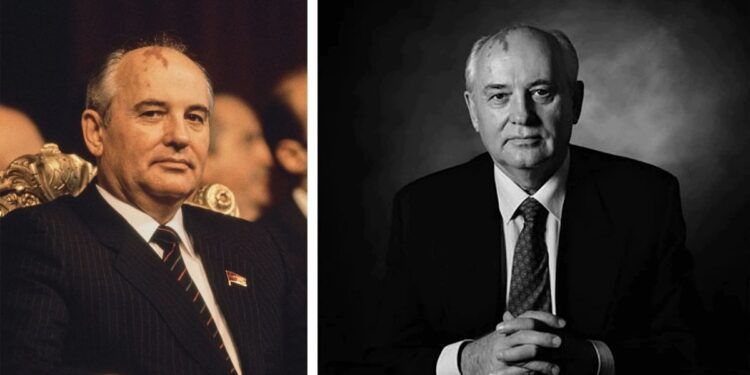Mikhail Gorbachev remains one of the most influential political figures of the twentieth century. As the last leader of the Soviet Union, he played a defining role in ending the Cold War, reshaping the Soviet political landscape, and paving the way for a new era in global relations. His policies of Perestroika (restructuring) and Glasnost (openness) transformed the rigid Soviet system and initiated reforms that led to the eventual dissolution of the USSR. Despite mixed opinions about his leadership, Gorbachev’s impact on history is undeniable. This article explores his life, political career, key achievements, controversies, and net worth.
Quick Bio
| Field | Details |
| Full Name | Mikhail Sergeyevich Gorbachev |
| Date of Birth | March 2, 1931 |
| Place of Birth | Privolnoye, Stavropol Krai, Russia |
| Nationality | Russian |
| Education | Law degree from Moscow State University |
| Political Party | Communist Party of the Soviet Union |
| Known For | Perestroika, Glasnost, Ending the Cold War |
| Position | General Secretary of the Communist Party (1985–1991), President of the USSR (1990–1991) |
| Spouse | Raisa Gorbacheva |
| Died | August 30, 2022 |
| Net Worth (at time of death) | Estimated at around $5 million USD |
Early Life and Education
Mikhail Sergeyevich Gorbachev was born on March 2, 1931, in Privolnoye, a small village in the Stavropol region of Russia. Coming from a humble background, his family worked in agriculture, enduring the struggles of the Soviet Union’s rural life during the 1930s. His early life was shaped by hardship, with his family suffering from the consequences of Stalin’s agricultural policies and the devastation of World War II.
Despite these challenges, Gorbachev displayed a strong academic ability from a young age. He was admitted to Moscow State University, one of the most prestigious educational institutions in the USSR, where he studied law and graduated in 1955. It was during his university years that he joined the Communist Party, marking the beginning of his political journey. His education gave him a solid understanding of Soviet ideology but also exposed him to broader perspectives, which later influenced his reformist approach.
Rise in Soviet Politics
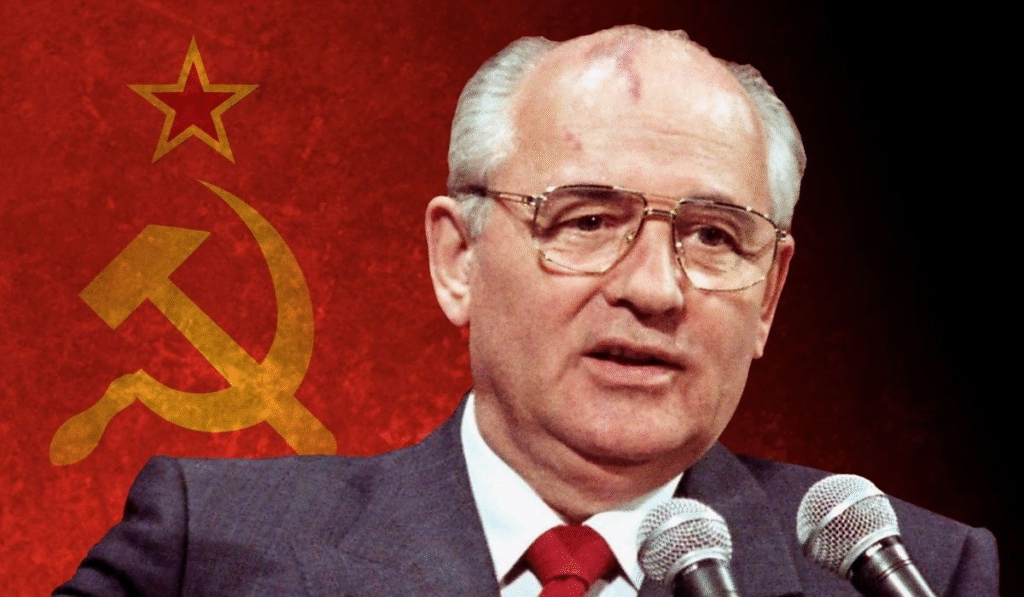
After completing his education, Gorbachev returned to his home region and began working for the Komsomol, the Communist Party’s youth organization. His leadership skills quickly gained attention, and he steadily rose through the party’s ranks. By the late 1970s, Gorbachev had become a member of the Central Committee of the Communist Party, one of the most powerful bodies in the Soviet Union.
He was known for his intelligence, communication skills, and pragmatic leadership style. These qualities helped him build relationships with influential leaders, including Yuri Andropov, who played a crucial role in promoting Gorbachev within the party. When Konstantin Chernenko, the then General Secretary, passed away in 1985, Gorbachev was chosen to succeed him, becoming the youngest leader in Soviet history at that time.
The Era of Perestroika and Glasnost
Once in power, Mikhail Gorbachev recognized that the Soviet Union was facing deep economic stagnation, bureaucratic inefficiency, and widespread public dissatisfaction. He launched two major reform policies — Perestroika (economic restructuring) and Glasnost (political openness) — to modernize the system and restore public trust.
Perestroika aimed to decentralize economic control, giving enterprises more autonomy and encouraging limited private business activities. This was a radical shift from the centrally planned economy that had defined the Soviet Union for decades. On the other hand, Glasnost allowed for greater freedom of speech, transparency in government affairs, and open discussion of political issues. These policies inspired hope among citizens but also unleashed forces that the leadership could not fully control.
Foreign Policy and the End of the Cold War
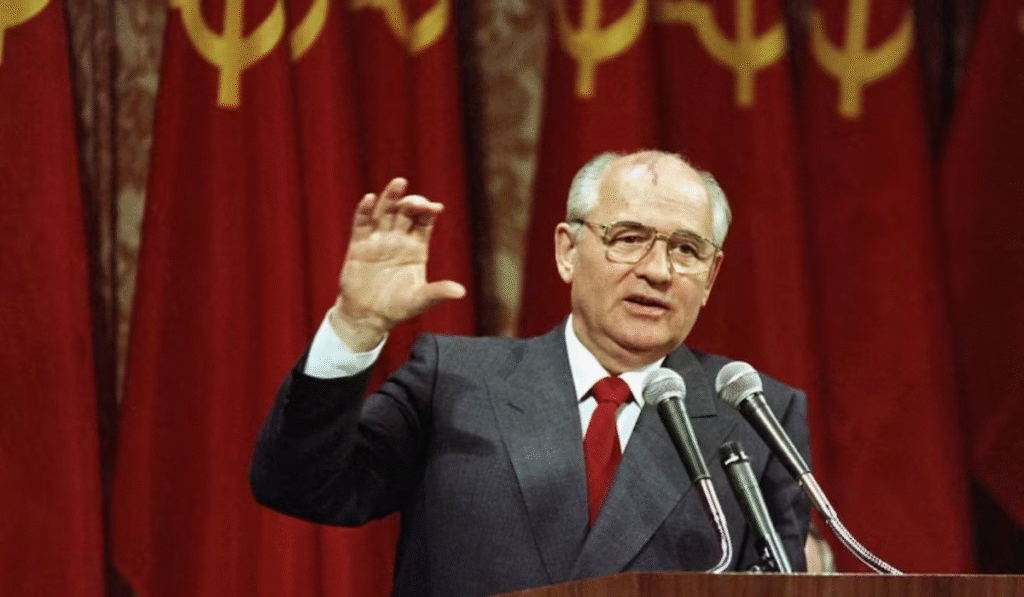
Gorbachev’s foreign policy was guided by the principle of “new thinking,” which prioritized diplomacy and cooperation over confrontation. He sought to ease tensions with the West, leading to landmark agreements with the United States to reduce nuclear weapons and promote peace. His relationship with U.S. President Ronald Reagan marked a turning point in global politics.
In 1987, the signing of the Intermediate-Range Nuclear Forces Treaty (INF) demonstrated the success of his diplomatic efforts. His decision to withdraw Soviet troops from Afghanistan and his non-interference policy in Eastern European affairs allowed nations under Soviet influence to pursue independence. These actions ultimately contributed to the fall of the Berlin Wall in 1989 and the reunification of Germany, symbolizing the end of the Cold War.
Challenges and the Collapse of the Soviet Union
Despite his reform efforts, Gorbachev faced severe challenges at home. The Soviet economy struggled to adapt to the new policies, and the loosening of political control led to nationalist movements across the republics. The rise of separatist sentiments in regions like the Baltics, Ukraine, and Georgia weakened the central authority.
In 1991, a failed coup attempt by hardline communists seeking to restore strict control further destabilized the nation. Although Gorbachev regained power briefly after the coup, his influence had diminished significantly. Later that year, the Soviet Union officially dissolved, marking the end of an era. Boris Yeltsin, President of Russia, emerged as the dominant figure in the post-Soviet landscape.
Life After the Soviet Union
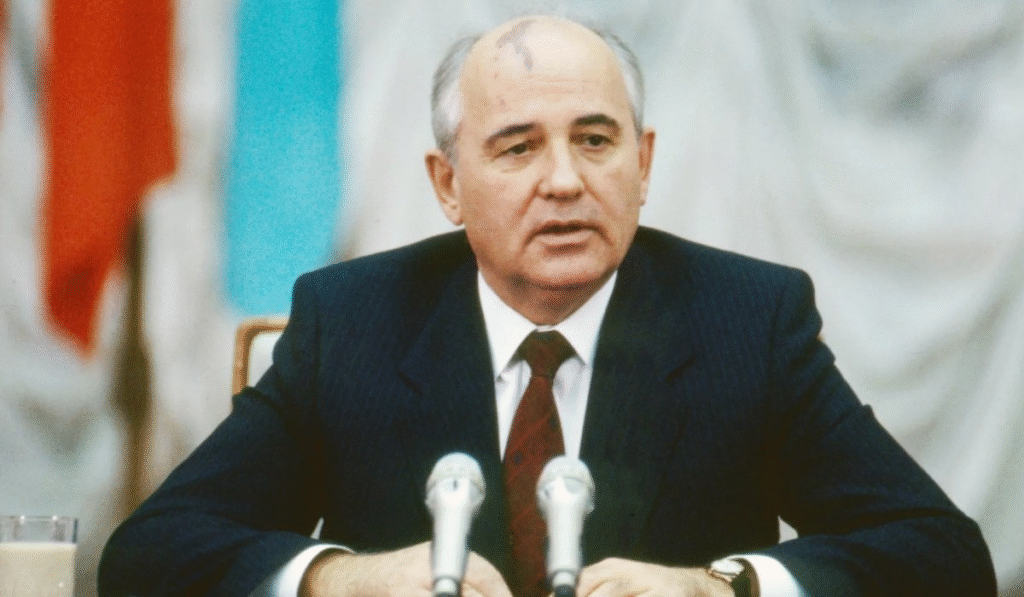
After stepping down as the last President of the Soviet Union in December 1991, Gorbachev remained active in public life. He founded the Gorbachev Foundation, a think tank focused on political, social, and environmental issues. He also established the Green Cross International, an organization dedicated to promoting sustainable development and environmental protection.
Gorbachev continued to voice his opinions on Russian and global politics, often criticizing the growing authoritarianism within post-Soviet Russia. He also engaged in international lectures, wrote several books, and became a prominent advocate for democracy and peace. Though his popularity in Russia declined over time, he maintained respect abroad for his role in reshaping the world order.
Awards and Recognition
Mikhail Gorbachev received numerous awards and honors for his contributions to peace and international diplomacy. In 1990, he was awarded the Nobel Peace Prize for his role in ending the Cold War without violence. His leadership was praised for promoting dialogue between nations and avoiding catastrophic conflict.
Over the years, he received honorary degrees and global recognition for his efforts toward disarmament, democracy, and openness. Despite the criticism he faced from those who viewed his reforms as the cause of the Soviet Union’s collapse, Gorbachev’s name remains associated with progress, reform, and peace.
Mikhail Gorbachev’s Net Worth
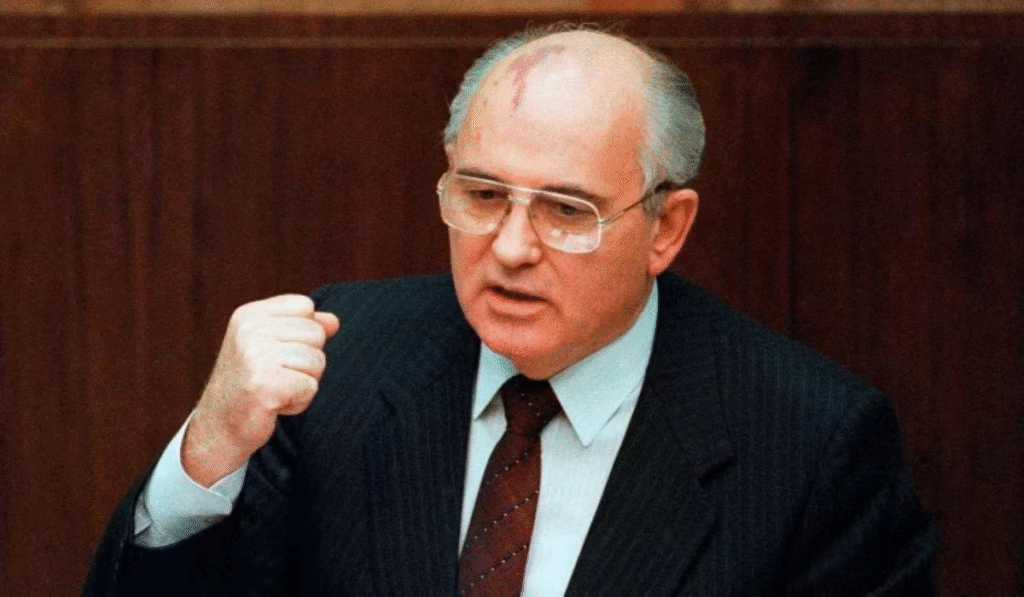
At the time of his death in 2022, Mikhail Gorbachev’s estimated net worth was around $5 million. Unlike many political leaders, Gorbachev did not accumulate massive personal wealth during his career. His income primarily came from book royalties, international speaking engagements, and the work of his foundations. His modest lifestyle reflected his image as a leader focused more on ideas and reform than personal gain.
Legacy and Influence
Mikhail Gorbachev’s legacy is complex and continues to inspire debate. In the West, he is celebrated as the visionary leader who helped end the Cold War and promoted freedom across Eastern Europe. In Russia, however, opinions are more divided; some view him as the man responsible for the Soviet collapse and the hardships that followed in the 1990s.
Nevertheless, his role in transforming world politics is undeniable. He demonstrated that dialogue, openness, and reform could achieve more lasting results than confrontation. Gorbachev’s vision for a more transparent, peaceful, and interconnected world remains relevant even today as nations grapple with conflict and competition.
Conclusion
Mikhail Gorbachev’s life story is a journey from humble beginnings to global influence. His courage to challenge the status quo, embrace reform, and engage in diplomacy reshaped the course of history. Although his reforms led to unintended consequences, his commitment to peace, transparency, and progress continues to inspire generations. The world remembers Mikhail Gorbachev not just as the last Soviet leader, but as a statesman who changed the world’s direction through vision, resilience, and hope.
FAQs about Mikhail Gorbachev
1. Who was Mikhail Gorbachev?
- Mikhail Gorbachev was the last leader of the Soviet Union, serving as General Secretary of the Communist Party and later as the country’s first and only President. He is best known for his reform policies of Perestroika and Glasnost and his role in ending the Cold War.
2. What were Perestroika and Glasnost?
- Perestroika referred to Gorbachev’s policy of restructuring the Soviet economy, while Glasnost promoted openness, transparency, and freedom of information within the government and society.
3. Why did the Soviet Union collapse under Gorbachev?
- The combination of economic stagnation, rising nationalism, and the unintended consequences of political liberalization led to the weakening of central control, resulting in the USSR’s dissolution in 1991.
4. What awards did Mikhail Gorbachev receive?
- Mikhail Gorbachev was awarded the Nobel Peace Prize in 1990 for his leadership in reducing global tensions and promoting peace between the East and the West.
5. What was Mikhail Gorbachev’s net worth?
- At the time of his death, Mikhail Gorbachev’s net worth was estimated to be around $5 million, primarily earned through his books, lectures, and foundation work.


